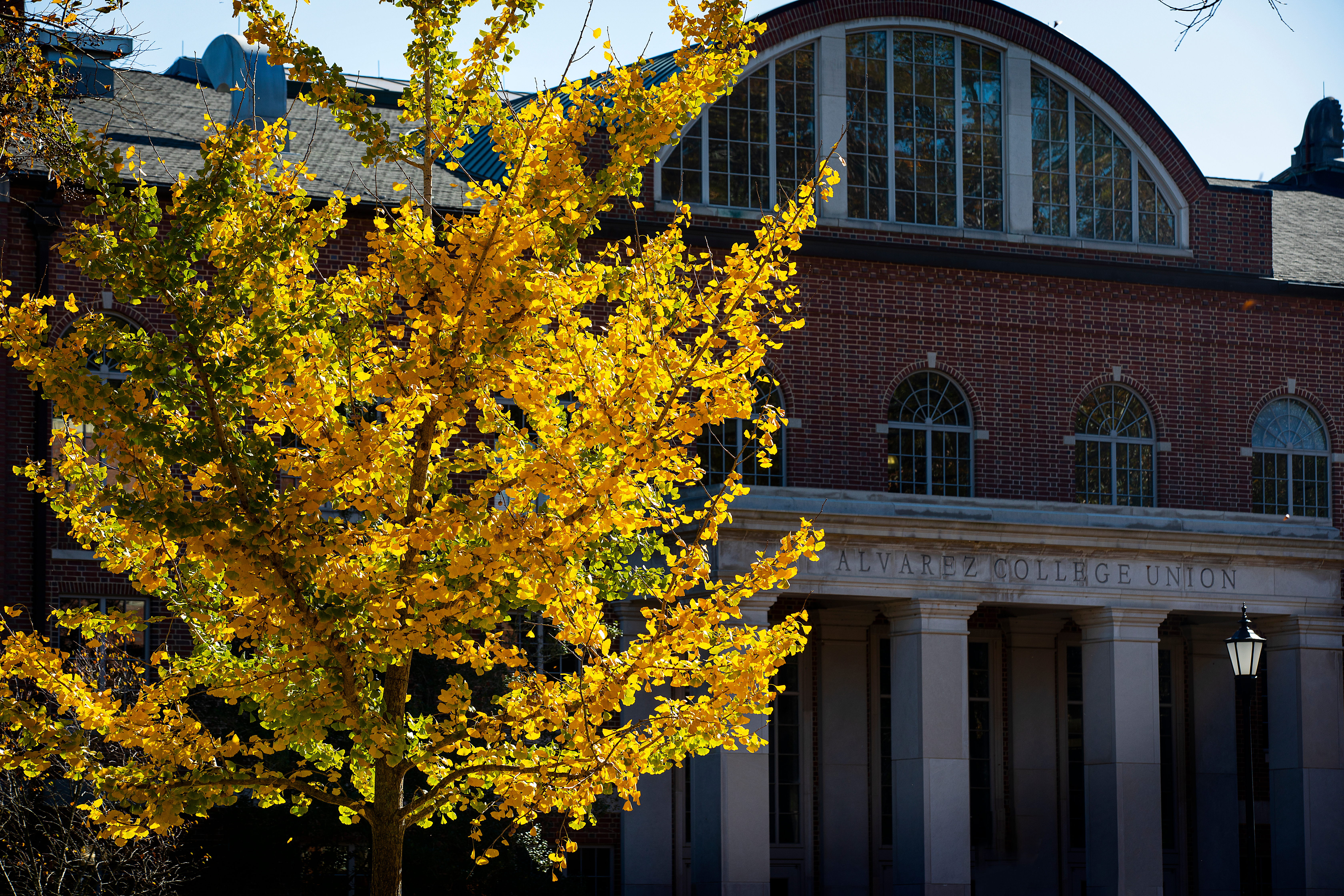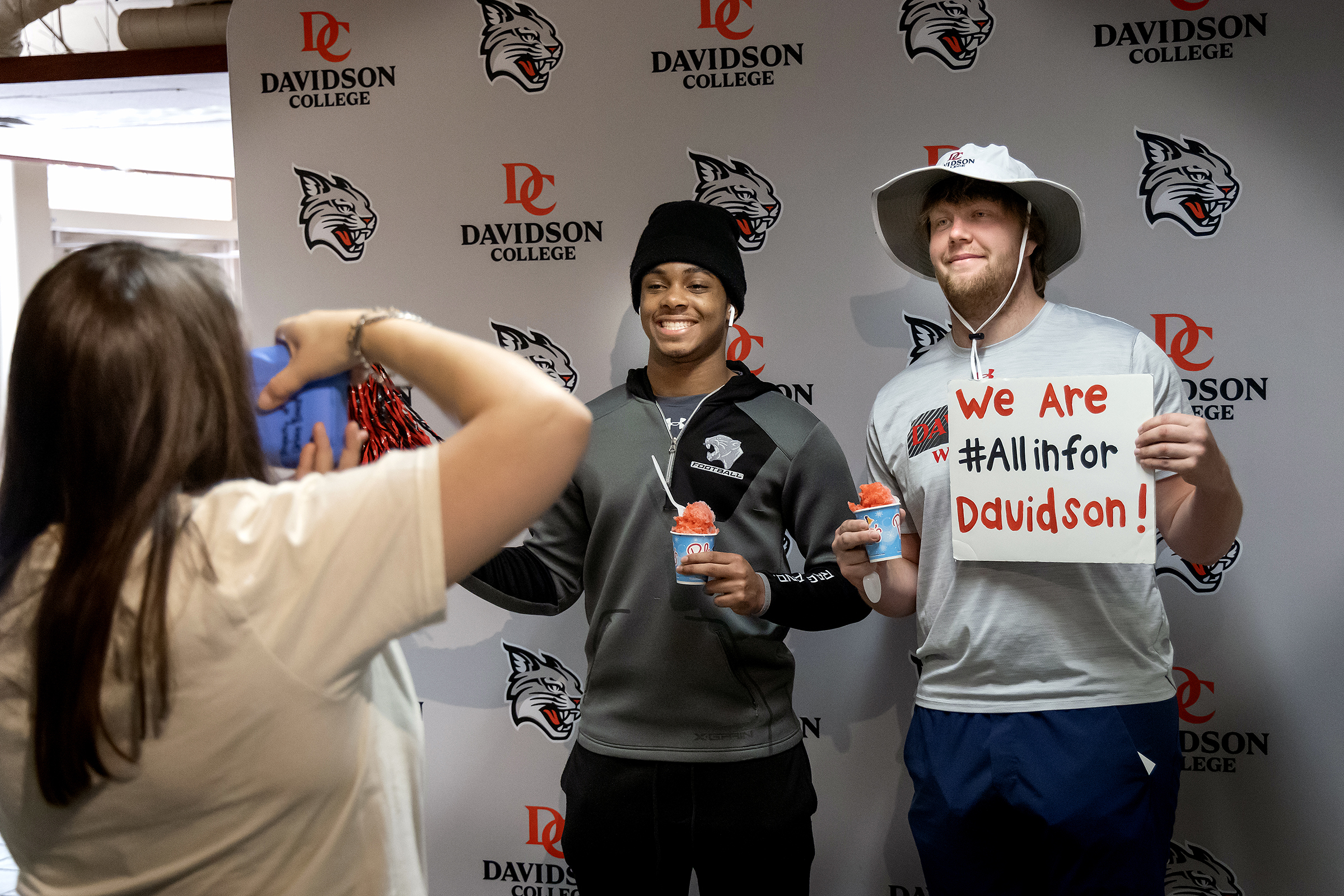Decades of Davidson Moments: Dean Tom Shandley Retires
April 26, 2017
Everyone on campus can point to a "Davidson moment" of their own. For Dean of Students Tom Shandley, a moment in spring 2007 stands out–after deliberation around a conference table in Chambers Building, college leaders formally committed to the Davidson Trust.
The trust eliminates loans from financial aid packages, keeping need-blind admission and continuing to meet 100 percent of demonstrated need. A first in the nation, that formula opened doors for many students who could never, or would never, have considered Davidson.
"I was one of those kids," said Shandley. "I fully depended on scholarships and financial aid to pay for my college, and anything that was not covered was on me."
An amateur sculptor and potter, Shandley donates a piece annually to the student-led Dinner at Davidson fundraiser and silent auction to benefit the Davidson Trust.
A Vocation
Shandley grew up three blocks from Simpson College in Indianola, Iowa, where his mother was director of career services. By the time he went to school there, he already knew a lot of people, including the dean of students.
That, he decided, was the job he wanted.
"When I was a junior, we were supposed to forecast our career aspirations. Mine was to be a dean of students at a small private college by the age of 35," he said. "I still have that paper."
Right on schedule, Shandley became dean of student affairs at Rhodes College in 1988, after earning a bachelor's degree in psychology from Simpson, a master's in college student personnel from Bowling Green State University and a doctorate in higher education from the University of Minnesota.
At Rhodes he met a student named Jamie Kuykendall and then his parents, John and Missy. John Kuykendall was then president at Davidson. Conversations ensued. Shandley read about Davidson's "Love of Learning" program that helped low-income students in Charlotte area high schools get into college.
"I appreciated a place that would be interested in that kind of a program," he said.
A place like that was interested in him, too. Shandley arrived on campus in 1994, a new dean of students on a campus ripe for growth and change.
The Personal & Political
Immediately, President Kuykendall handed Shandley two specific challenges: what to do with the college's disused Johnston Gym (ca. 1949) and how to end the practice of beer kegs at college parties (ca. the 1970s and 1980s).
Today, the old gym is Knobloch Campus Center, a central campus landmark second only to Chambers as an essential place for student life. And on Patterson Court and elsewhere, students have opportunities to socialize that extend far beyond alcohol-centric parties.
Those two examples of campuswide change serve to illustrate the collaborative and personal style Shandley brought to potentially delicate discussions and, more broadly, to his twin-titled job as dean of students and vice president for student life.
As in the titles, students came first, individually and as a body. The necessary administrative work of student life ran a close and integral second. He loved both.
"The position can be political," said Dara Ferguson '17, immediate past SGA president. During her term, she met weekly with Shandley for frank talks about leadership and life. "I give him credit for being a person that everyone can confide in.
When Shandley arrived in 1994–two decades after coeducation came to Davidson and only three since racial integration–women's issues were emerging with new calls to action, there were no black fraternities or sororities, many gay students remained closeted and socioeconomic segregation was a fact of life, if not of policy.
From his own roots as "one of those kids" for whom the possibility of college was not a foregone conclusion, Shandley drew and built on his own sense of genuine care in personal relationships. He also developed administrative expertise, honed over time through leadership and service in national organizations.
His guiding star was one of helping: helping the students, faculty and staff of Davidson embrace the idea ever more broadly that campus life is made stronger and richer by the inclusion of those from all races, ethnicities, sexual orientations, ZIP codes and tax brackets.
On his watch, the Multicultural House (now the Weinstein Center for Community and Justice) opened in a former fraternity building, the college launched a scholarship program for first-generation college students, the Chidsey Center for Leadership came to fruition, the Davidson College Advising Corps was created to serve under-resourced high schools, a sexual misconduct board was formed and bystander intervention training became the norm. The list goes on.
Honorable Intentions
Shandley guided students through their best moments and sometimes their worst, as they took on big ideas and responsibilities, made decisions that affected the entire college and created new opportunities for fellow students.
"When Tom worked with students who found themselves in trouble of any kind, his primary concern was always making sure that the student felt supported during that difficult journey," said Kathy Bray '85, who worked alongside Shandley as associate dean for 15 years.
In some cases, that concern extended beyond the student body to alumni.
Early in his tenure, Shandley answered a call from a contrite alumna who confessed that, in a single moment of desperation, she had violated Davidson's revered Honor Code by cheating on academic work years before. She stood ready to surrender her diploma.
Shandley, still humbly tight-lipped in confidence with that alumna, will say only that a soul-searching conversation with her yielded a solution that honored the intent of her phone call as well as the college's bedrock Honor Code.
During his tenure, Shandley formalized that Honor Code further by instituting a signing ceremony that is now a highlight of orientation for all incoming classes, and a tangible commitment to the values that drive the mission of the college: to help students develop humane instincts and disciplined and creative minds for lives of leadership and service.
"It's the only place I've been where people can say what the essential mission of the place is," he said. "The challenge sometimes has been honoring the traditions, but not being afraid to change when circumstances require it. I tell my staff continually, ‘We're the same, but our students change every year.'"\
John Syme
josyme@davidson.edu
704-894-2523



